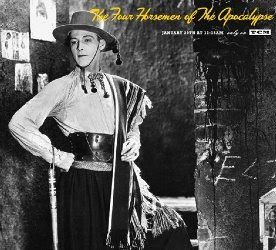 The Book of the Week is Bloodchild and Other Stories by Octavia E. Butler. We are putting our history of the pulp magazines on hold to pay tribute to Ms. Butler, who died on Friday when she stumbled and hit her head on the walkway outside her Seattle home. She was only 58.
The Book of the Week is Bloodchild and Other Stories by Octavia E. Butler. We are putting our history of the pulp magazines on hold to pay tribute to Ms. Butler, who died on Friday when she stumbled and hit her head on the walkway outside her Seattle home. She was only 58. Octavia Butler was one of the finest writers of the past generation, but received far less attention than her work merited because of prejudice--ironically, not prejudice against her as a black woman, but prejudice against her as a science fiction writer. But while mainstream critics and academics are slow to recognize literary quality when it comes from the science fiction genre, the SF community knows a good thing when it sees it. Within the SF field, Octavia Butler was honored with two Hugo Awards and two Nebula Awards, and was regarded as one of the field's elite and one of the two greatest African-American SF authors ever, rivaled only by Samuel R. Delany. She was also a recipient in 1995 of a $295,000 "genius grant" from the MacArthur Foundation, although she complained that the award was given in error, since no one tested her IQ.
Butler preferred writing at novel length--she wrote a dozen novels and only a handful of short stories--but the short fiction she did write was among her best work. Bloodchild and Other Stories collects most of her short fiction, including her novelette "Bloodchild," which won a Hugo and Nebula Award, and her short story "Speech Sounds," which won a Hugo Award. The Book of the Week is the first edition, published in 1995 by Four Walls Eight Windows. I wrote a review of this book several years ago for Fantastic Reviews, which you can find here: Bloodchild and Other Stories
Butler struggled recently with writer's block, but last year she completed Fledgling, her first new novel in seven years. Readers hoped it signaled the end of her writer's block, and that more books would soon follow. That we will now never be able to enjoy those works is a terrible loss.





